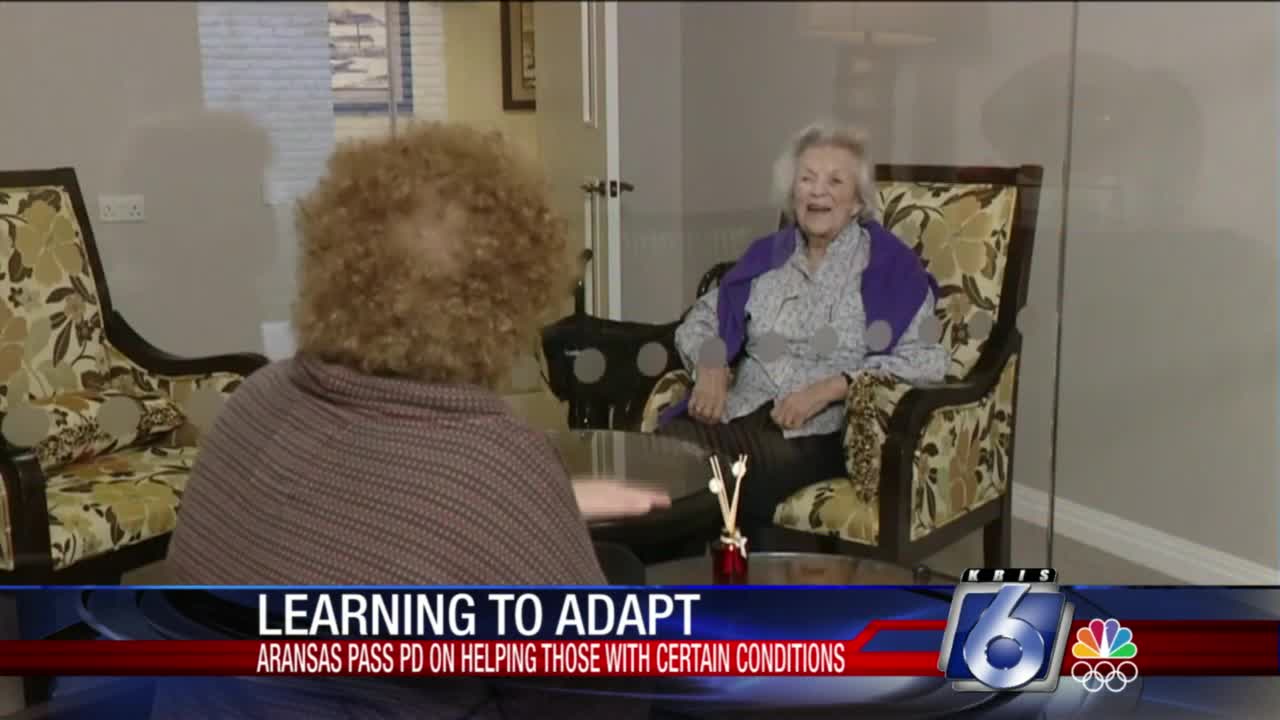ARANSAS PASS, Texas — Chauncey Thompson is a caregiver at St. Gabriel of Corpus Christi Memory Care, and she has been in the caregiving business for 13 years.
She said there are some challenges when it comes to working with patients with Alzheimer’s and Dementia. Some of those challenges involve communication and remembering.
“A lot of times with the remembering part, not remembering who I am, I’m patient and I’ll get down to their level and talk to them the way that you would want to be talked to,” Thompson said.
Executive Director at St. Gabriel’s, Laurie Revels, said police should be cautious with patients with cognitive decline conditions like Alzheimer’s and Dementia, because they can become troubled later in the evening when they can't remember and become confused.
She said sometimes patients are trying to communicate what is going on with them but cannot, so they can act out in ways that are not typical. Revels said identifying their behavior is the first step.
“It takes a special person to know how to communicate with somebody that doesn’t know how to communicate with others,” Revels said.
The Aransas Pass Police Department said they wanted to learn more about handling patients with congnitive decline conditions and that's why last week they took part in a roundtable hosted by the Area Agency on Aging of the Coastal Bend.
Chief Eric Blanchard said they are now able to better identify whether someone has a cognitive decline issue or a mental health issue. He said they are working on an online form that would allow family members to submit information about a patient so that way if they ever had to attend to that patient on scene, they would already have information on them.
“We’re all trying to venture out of the traditional norms and find more proactive or progressive ways of dealing with some of these situations for the betterment of our communities that we serve,” Blanchard said.
Blanchard said they’re prioritizing addressing a patient’s issue on the scene rather than the consequences that will come out of their actions. He said he learned to play into an Alzheimer’s or Dementia patient’s situations, but learned not to do it with a patient that has mental health issues like Bipolar Disorder or Schizophrenia.
“Our elderly folk that got us to where we are today in this great country, we need to be looking out for them,” he said.




